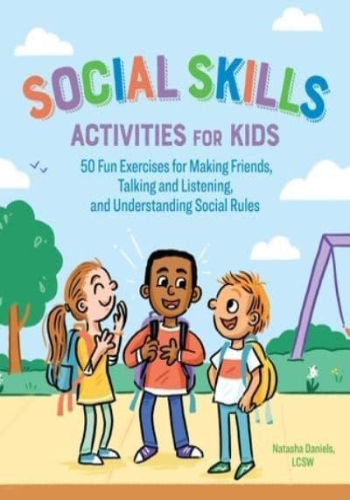The fun way for kids 6 to 10 to develop social skills and make friends more easily
What are the Dos and Don'ts for making and keeping friends? How can you decode body language clues? What's the best way to keep a conversation going? Just like learning multiplication tables, social skills don't come naturally―every child has to learn them. Luckily, this book makes mastering social skills super fun with 50 awesome activities.
Social Skills Activities for Kids gives children the confidence to successfully navigate social situations at home, school, and the world in between. From keeping the conversation ball moving to learning to compromise to practicing good table manners, these engaging activities help kids develop and use their social skills super powers.
Inside Social Skills Activities for Kids, you'll find:
- Life lessons―Kids learn how to handle everyday social situations like communicating with peers and adults, using and interpreting body language, reading social cues, and more.
- 50 Interactive activities―Games, fill-in-the-blank exercises, and reflective entries keep kids learning and engaged.
- Real scenarios―Includes up-to-date topics like bullying and using social media.
Get the courage to be your very best self with Social Skills Activities for Kids.







